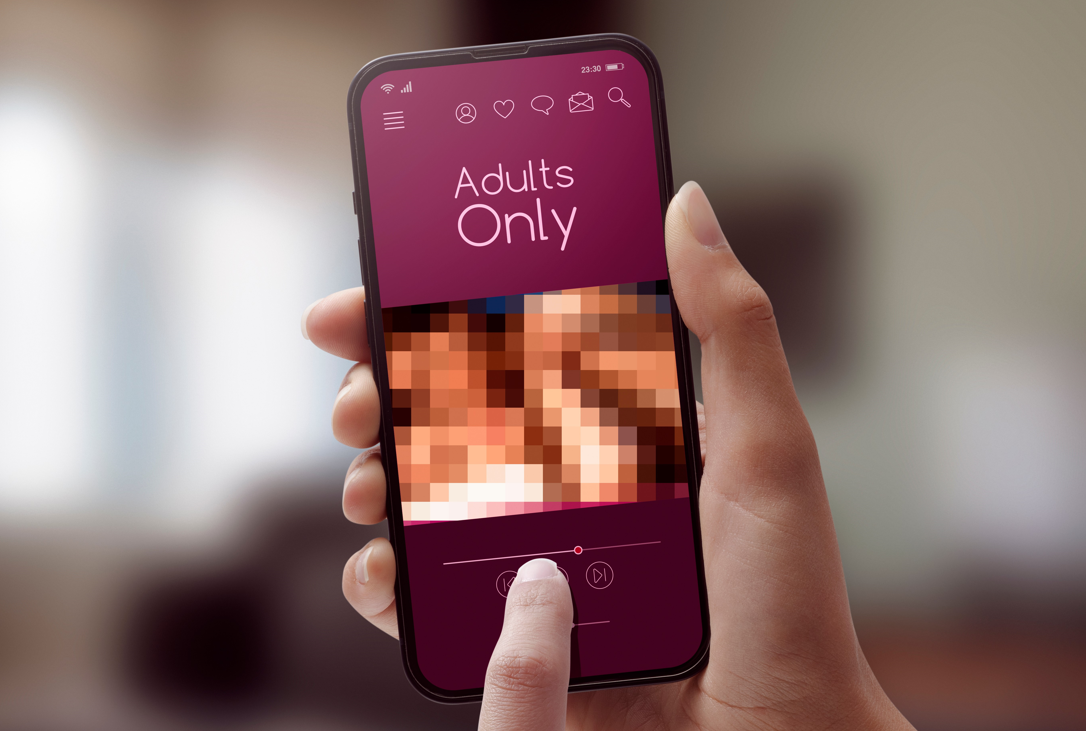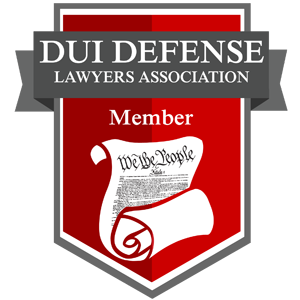Charged With Child Pornography In Michigan Under MPC 750.145c?
If you’ve been charged with a child pornography offense in Michigan, you need a skilled criminal defense attorney by your side to fight for your rights. At George Law, our experienced sex crimes lawyer team, led by attorney Derrick George, is well-versed in the intricacies of Michigan’s legal system and has a strong history of successfully defending clients facing similar child pornography charges. Our sex crimes lawyers understand the gravity of these allegations and are committed to providing you with a robust defense and to treating your child pornography case with the attention it deserves. Don’t wait – take action today by dialing (248) 247-7459 or connecting with our criminal defense attorneys online through our contact form. Your future is too important – and the consequences of a sex crime conviction too consequential – to leave to chance. 
As a criminal defense law firm in Michigan, the role of our sex crime attorney team is to provide comprehensive legal guidance and support to individuals who might face charges related to child pornography or child sexually abusive material. It is essential to understand the state’s laws concerning these offenses thoroughly. Below, our criminal defense lawyers will delve into the key points of the Michigan Penal Code Section 145c, which defines child sexually abusive activity and material, outlines penalties for various offenses, and addresses expert testimony and defenses.
Defining Terms: Key Definitions Under Section 145c
To fully grasp the statute, let’s explore some key definitions outlined in Michigan Penal Code Section 145c:
“Access”
The intentional act of causing child pornography to be viewed by or transmitted to another person.
“Appears To Include A Child”
Refers to depictions that create the impression of involving someone under 18 years old. This can be achieved through actual images of minors or by meeting specific criteria, including appealing to prurient interests and lacking serious value.
“Child”
Defined as an individual under 18 years old, with some exceptions for emancipated individuals.
“Child Sexually Abusive Activity”
The participation of a child in any listed sexual act, as defined under the statute.
“Child Sexually Abusive Material”
Encompasses any form of depiction, including photographs, videos, or electronic images, portraying a child engaging in a listed sexual act.
“Prurient Interest”
Refers to a shameful or morbid fascination with nudity, sex, or excretion.
Prohibited Conduct And Penalties
Section 145c addresses various offenses related to child pornography, with corresponding penalties:
Production Or Distribution Of Child Sexually Abusive Material
Anyone who persuades, induces, allows, arranges for, produces, makes, copies, reproduces, or finances child sexually abusive material involving a child is guilty of a felony. Penalties range from up to 20 years of imprisonment and a fine of up to $100,000 for standard offenses, to up to 25 years in prison and a fine of up to $125,000 for more severe cases involving prepubescent children, sadomasochistic abuse, or bestiality.
Possession Of Child Sexually Abusive Material
Knowingly possessing or seeking child sexually abusive material is a felony punishable by imprisonment for up to 4 years and a fine of up to $10,000. More serious cases, involving prepubescent children, sadomasochistic abuse, or bestiality, or including more than 100 images or a video, carry harsher penalties, with imprisonment for up to 10 years and a fine of up to $50,000.
Exceptions And Immunity
Certain professionals are granted immunity from criminal liability when acting within their duties regarding child pornography:
Film Processors And Computer Technicians
Commercial film or photographic print processors and computer technicians are protected from liability if they report child pornography to law enforcement or keep the material according to their instructions.
Police Officers, Judicial Officers, And Other Professionals
Police officers, judicial officers, employees or agents of the Department of Health and Human Services, parties or witnesses in a criminal or civil proceeding, and licensed medical professionals acting within their scope of practice are also exempt from prosecution when dealing with child sexually abusive material for legitimate purposes.
Expert Testimony And Defense
Expert testimony concerning the age of the child depicted in child sexually abusive material can be presented as evidence in court, potentially serving as a legitimate basis for determining age if other means of age verification are unavailable.
Furthermore, an affirmative defense exists if the defendant can prove that the depicted individual is emancipated by law.
Additionally, if a defendant wishes to argue that the material does not involve an actual person under 18, they must provide timely notice to the prosecuting attorney, including specific information supporting their claim.
Reasonable Availability Of Evidence And Uniform Application
Section 145c establishes guidelines regarding the reasonable availability of evidence for the defendant:
- The court may deny requests by the defendant to reproduce photographic evidence of child pornography if the prosecuting attorney makes the evidence reasonably available for inspection.
- To ensure uniformity, this section applies throughout the state, including all political subdivisions and municipalities, and prohibits local ordinances concerning child sexually abusive activity or material.
Frequently Asked Questions About Michigan’s Child Pornography Laws
What Constitutes Child Pornography Under Michigan Law?
Child pornography, also known as child sexually abusive material, includes any depiction, such as photographs, videos, electronic images, or print media, that portrays a child engaging in a listed sexual act. It involves individuals under the age of 18 and may also encompass material that appears to include a child, meeting certain criteria as defined in the statute.
What Are Listed Sexual Acts?
Listed sexual acts, as outlined in the statute, include sexual intercourse, erotic fondling, erotic nudity, masturbation, passive sexual involvement, sadomasochistic abuse, and sexual excitement.
What Are The Penalties For Producing Or Distributing Child Pornography In Michigan?
The penalties vary based on the severity of the offense. For standard cases, producing or distributing child sexually abusive material can lead to a felony conviction with up to 20 years of imprisonment and a fine of up to $100,000. More serious cases involving prepubescent children, sadomasochistic abuse, or bestiality, or including a video or more than 100 images of child pornography, carry harsher penalties, with up to 25 years in prison and a fine of up to $125,000.
What Are The Consequences For Possessing Child Pornography In Michigan?
Knowingly possessing or seeking child sexually abusive material is a felony offense. The penalties for possession range from up to 4 years in prison and a fine of up to $10,000 for standard cases, to up to 10 years in prison and a fine of up to $50,000 for more severe cases involving prepubescent children, sadomasochistic abuse, or bestiality, or including a video or more than 100 images of child pornography.
Are There Any Exceptions To Possession Charges?
Certain professionals are exempt from possession charges when acting within their official duties. This includes film processors, computer technicians, police officers, judicial officers, employees or agents of the Department of Health and Human Services, parties or witnesses in a criminal or civil proceeding, and licensed medical professionals acting within their scope of practice.
Is There An Affirmative Defense To Child Pornography Charges?
Yes, an affirmative defense exists if the defendant can prove that the depicted individual is emancipated by law. Emancipation refers to someone under 18 years old legally recognized as an adult through specific circumstances outlined in the law.
What Role Does Expert Testimony Play In Child Pornography Cases?
Expert testimony can be presented in court to determine the age of the child depicted in the sexually abusive material. This testimony can serve as a legitimate basis for establishing the age of the individual if other means of age verification are unavailable.
Can Defendants Argue That The Material Doesn’t Involve An Actual Person Under 18?
Yes, defendants can present this argument, but they must provide timely notice to the prosecuting attorney, including specific information supporting their claim. Failure to provide such notice precludes the defendant from offering this defense.
Defenses to Child Pornography Charges
There are several defenses that defendants may employ in cases involving child pornography charges. It’s important to note that these defenses should be used judiciously and under the guidance of an experienced criminal defense attorney. Here are some defenses that may apply:
Emancipation Defense
A defendant may assert an affirmative defense by proving that the depicted individual is emancipated by operation of law. Emancipated individuals (who are at least 16 years old in Michigan) are legally recognized as adults despite being under 18 years old, and their involvement in sexually explicit material may not qualify as child pornography.
Age Verification Defense
If the defendant intends to argue that the material does not involve an actual person under 18, they must provide timely notice to the prosecuting attorney, along with specific information supporting their claim. If they can demonstrate that the depiction does not include a minor, this defense may be used to challenge the charges.
Lack Of Knowledge Defense
In cases of possession, a defendant may claim that they were unaware that the material they possessed was child pornography. If they can demonstrate a lack of knowledge about the nature of the material, it may serve as a defense.
Reasonable Precautions Defense
In some situations, a defendant might assert that they took reasonable precautions to determine the age of the individual depicted in the material but were unable to do so. If they can demonstrate that they made genuine efforts to verify the age but were unsuccessful, this defense might apply.
Illegal Search And Seizure
If evidence was obtained through an illegal search and seizure, violating the defendant’s Fourth Amendment rights, their attorney might argue for the exclusion of that evidence in court.
Mistaken Identity
A defendant may claim mistaken identity if they believe they were wrongfully identified as the individual involved in producing, distributing, or possessing child pornography.
Chain Of Custody And Authentication
Defense attorneys may challenge the chain of custody and authenticity of evidence to question its reliability and admissibility in court.
Entrapment
If a defendant can demonstrate that law enforcement officers induced or coerced them into committing the offense, they may raise the defense of entrapment.
Facing Child Pornography Charges In Michigan? Contact George Law Today!
If you or someone you know is confronting child pornography charges in Michigan, the allegations are classified as sex crimes and the stakes are undeniably high. Therefore, securing an experienced criminal defense lawyer is absolutely crucial. At George Law, our sex crimes attorneys understand the overwhelming stress and fear that a child pornography charge can bring into your life. Our dedicated criminal defense lawyer team, led by seasoned attorney Derrick George, possesses in-depth knowledge of Michigan’s complex legal system as it pertains to sex crimes and has a proven track record of successfully defending clients against similar charges. Don’t face these allegations alone – our criminal defense attorney team is here to protect your rights, preserve your reputation, and strive for the best possible outcome in your case. Take the first step towards safeguarding your future by calling us at (248) 247-7459 or reaching out to us online through our contact form.

 Menu
Menu







